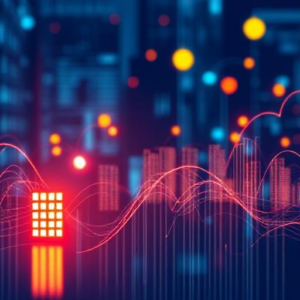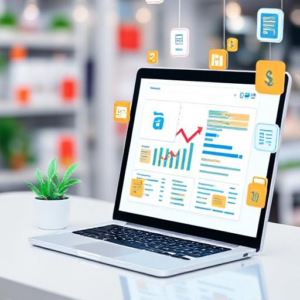Predicts trends and developments in the data entry industry
Predicts trends and developments
Trends and developments
Trends and Developments is changing fast, thanks to new technologies and the increasing need for businesses to handle large amounts of data. While data entry used to be about manually typing information, it is now becoming much more advanced. Here are some key trends that will shape the future of the data entry industry.
1. Automation and Artificial Intelligence (AI)
Automation and AI are making data entry faster and more accurate. Machines can now take over many of the repetitive tasks that humans used to do. For example, AI tools can read documents or images and extract data automatically. This helps companies save time and reduces the chances of errors.
What this means for workers:
People working in data entry will need to learn how to manage these automated systems, checking the data for mistakes and ensuring everything runs smoothly.
2. Data Analysis Skills
Businesses now want more than just data entry—they want insights from their data. This means data entry workers will need to learn basic data analysis skills. Instead of just entering data, they may be asked to help organize and analyze it, so companies can use it to make smart decisions.
What this means for workers:
Learning how to work with data analysis tools will become important in the future. These skills will make data entry workers more valuable to employers.
3. Cloud-Based Data Entry
More and more companies are using cloud platforms to store and manage their data. This means data entry professionals can work from anywhere in the world, as long as they have an internet connection. Cloud systems also make it easier to collaborate with others and keep data secure.
What this means for workers:
Being familiar with cloud-based tools will be useful, and there will be more opportunities for remote data entry jobs.
4. Data Security and Privacy
As businesses handle more personal and sensitive information, keeping data safe is more important than ever. There are now strict rules in place to protect people’s data, and data entry professionals will need to follow these guidelines closely.
What this means for workers:
Understanding data security laws and following best practices will become essential for anyone working in data entry.
5. More Freelance and Remote Opportunities
With the rise of freelance platforms like Upwork and Fiverr, companies are hiring data entry professionals from around the world. Remote work is becoming more common, allowing workers to take on projects without being in the office.
What this means for workers:
Data entry professionals can work from home or anywhere they want, giving them more flexibility and opportunities to find work.
6. Specialized Data Entry Jobs
Some industries, like healthcare and finance, require data entry professionals who have special skills or knowledge. For example, in healthcare, data entry workers need to handle sensitive medical information carefully, while in finance, accuracy is critical for regulatory compliance.
What this means for workers:
Getting experience in specific fields can help data entry professionals stand out and find more specialized and higher-paying jobs.
Conclusion
The data entry industry is evolving, with automation, cloud computing, and data security becoming key focus areas. While machines are taking over many repetitive tasks, there is still a need for skilled data entry professionals who can manage technology, ensure data quality, and provide insights. Those who are willing to learn new tools and adapt to these changes will have more opportunities in the future.

We are also on Facebook
Go back to home page: www.mistyinfotech.com
If you want to Direct Data Entry Projects with Company with Us Please go here: Direct Data Entry Projects with Company







